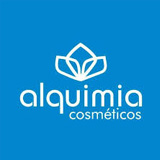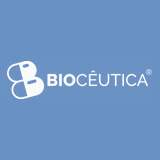As we age, our skin undergoes various changes that reflect the natural aging process, such as fine lines, wrinkles, and loss of elasticity. This transformation is largely attributed to a decrease in collagen production. Collagen is a fundamental protein found in our body, especially in the connective tissues, skin, and bones. This guide will delve into everything you need to know about collagen, its importance for skin health, how to boost your body’s collagen levels, and the best practices for maintaining plump, youthful skin.
What is Collagen?
Collagen is a fibrous protein that serves as a building block for various structures in the body, including skin, bones, tendons, ligaments, and cartilage. Comprising over 30% of the body’s total protein and about 70% of the skin’s dry weight, collagen plays a crucial role in maintaining the structure, strength, and elasticity of the skin and connective tissues.
There are over 28 types of collagen, but the four most common types are:
- Type I: Found in skin, bones, tendons, and ligaments. It’s the most abundant type in the body, offering strength and structure.
- Type II: Primarily found in elastic cartilage, this type supports joint health.
- Type III: Commonly found alongside type I, it helps with skin, blood vessels, and internal organs.
- Type IV: Located in the basal lamina, this type of collagen helps form membranes around cells.
The Role of Collagen in Skin Health
1. Maintaining Skin Structure
Collagen fibers create a supportive framework for our skin, keeping it firm and resilient. As collagen levels decline with age, the skin loses its structural integrity, leading to sagging and wrinkles.
2. Hydration and Elasticity
Collagen helps retain moisture in the skin, contributing to its hydration and elasticity. Well-hydrated skin appears plumper and youthful, while dehydrated skin can look dull and creased.
3. Wound Healing and Repair
Collagen is integral to the wound healing process. It helps form new tissue and supports the skin’s barrier, ensuring that injuries heal properly and efficiently.
4. Protection Against Environmental Damage
Collagen also provides a protective barrier for the skin, helping to guard against external aggressors like UV rays and pollution, which can speed up skin aging.
Decline of Collagen and Aging
From the age of around 25, our bodies begin to produce less collagen. By the age of 40, this reduction can lead to significant visible signs of aging. Factors contributing to collagen depletion include:
- Age: Natural decline due to the aging process.
- Sun Damage: UV radiation can degrade collagen fibers and lead to premature aging.
- Smoking: The toxins in cigarettes can interfere with collagen production.
- Poor Nutrition: Diets low in essential nutrients can compromise collagen synthesis.
- Hormones: Changes, especially the drop in estrogen levels during menopause, can affect collagen production.
Boosting Collagen Production Naturally
1. Nutrition
A well-rounded diet is fundamental when it comes to natural collagen production.
-
Protein: Consuming sufficient amounts of protein is crucial, as amino acids are the building blocks of collagen. Foods rich in protein include chicken, fish, beef, eggs, and legumes.
-
Vitamin C: This vitamin is necessary for collagen synthesis. Citrus fruits, berries, bell peppers, and green leafy vegetables are excellent sources.
-
Copper: Essential for collagen formation, copper-rich foods include nuts, seeds, whole grains, and shellfish.
-
Zinc: Involved in the collagen synthesis process, zinc can be found in meat, shellfish, legumes, seeds, and nuts.
- Antioxidants: Foods high in antioxidants can combat oxidative stress that damages collagen. Berries, green tea, dark chocolate, and vegetables should be staples in your diet.
2. Hydration
Staying well-hydrated is crucial for the skin’s overall health. Drinking plenty of water and consuming hydrating foods, like cucumbers and watermelon, supports skin elasticity and helps maintain collagen structure.
3. Lifestyle Choices
- Avoid Smoking and Excessive Alcohol: Both can accelerate the degeneration of collagen and impair skin health.
- Regular Exercise: Physical activity increases blood flow and nutrient delivery to the skin, promoting collagen production.
- Sufficient Sleep: Sleep is crucial for overall health and skin rejuvenation. Ensure you are getting enough restorative sleep to support skin repair and collagen maintenance.
4. Topical Treatments
Incorporating topical products that contain collagen-boosting ingredients can enhance your skincare routine. Look for products containing:
- Retinoids: Vitamin A derivatives that can boost collagen production and improve skin texture.
- Peptides: Chains of amino acids that signal skin to produce more collagen.
- Hyaluronic Acid: Helps retain moisture in the skin, enhancing elasticity.
- Vitamin C Serums: To promote collagen synthesis and brighten skin tone.
5. Supplements
Consider collagen supplements derived from animal sources like bovine or marine collagen. These hydrolyzed collagen peptides are easily absorbed and may contribute to improved skin elasticity and hydration. However, consult a healthcare professional before starting any new supplement regimen.
6. Professional Treatments
For more immediate results, consider professional treatments that stimulate collagen production:
- Microneedling: A treatment that creates small wounds in the skin to promote natural collagen production.
- Laser Treatments: These treatments can stimulate collagen production by using focused light energy.
- Chemical Peels: These can improve skin texture and promote a rejuvenated appearance.
7. Sunscreen
Protecting your skin from sun exposure is one of the most effective ways to maintain collagen levels. UV rays can break down collagen fibers and accelerate skin aging. Apply a broad-spectrum sunscreen with SPF 30 or higher daily, regardless of weather conditions.
Signs of Collagen Deficiency in the Skin
Recognizing signs of collagen deficiency can help you take proactive steps to reverse and prevent further damage. Common indicators include:
- Fine Lines and Wrinkles: The most apparent signs; they typically appear around the eyes and mouth.
- Sagging Skin: Loss of elasticity leads to droopy skin, particularly noticeable on the cheeks and jawline.
- Dryness: Reduced moisture retention can lead to a dull appearance and rough skin texture.
- Increased Visibility of Pores: As the skin loses firmness, pores may appear larger and more pronounced.
- Uneven Skin Tone: Collagen depletion can contribute to pigmentation issues and an uneven complexion.
Conclusion
Incorporating a focus on collagen into your skincare routine and overall health can yield remarkable benefits. Understanding the significance of collagen helps us appreciate its role in keeping our skin youthful, plump, and vibrant. By adopting a balanced diet, embracing healthy lifestyle choices, and utilizing skincare products and treatments that encourage collagen production, you can effectively combat the signs of aging and maintain healthy skin for years to come.
FAQs about Collagen
Q1: What age should I start taking collagen supplements?
A: While collagen production begins to decline in the mid-20s, it’s never too early or too late to start. If you’re experiencing signs of aging or wish to prevent them, consider starting a collagen supplement or increasing collagen-rich foods in your diet.
Q2: Is it possible to stimulate collagen production naturally?
A: Yes, you can stimulate collagen production naturally through a nutrient-rich diet, staying hydrated, regular exercise, avoiding smoking, getting enough sleep, and protecting your skin from sun damage.
Q3: Can I apply collagen directly to my skin?
A: Collagen itself is a large molecule that cannot easily penetrate the skin barrier when applied topically. Instead, look for products that contain collagen-boosting ingredients like peptides, vitamin C, and retinoids to promote collagen production.
Q4: How long does it take to see results from collagen supplements?
A: Results can vary from person to person, but studies suggest that consistent collagen supplementation for at least 4 to 12 weeks can show noticeable improvements in skin elasticity, hydration, and overall appearance.
Q5: Are vegan collagen supplements effective?
A: Vegan collagen supplements don’t contain collagen as it’s typically derived from animal sources. However, they often include ingredients that support your body’s own collagen production, like amino acids, vitamin C, and herbs. Always check for efficacy based on your personal skincare goals.
Q6: Is it safe to take collagen supplements every day?
A: For most people, daily collagen supplements are safe and may be beneficial for skin and joint health. However, always consult a healthcare professional before starting any new supplement.
By understanding the importance of collagen and how to maintain its levels, you will be on a successful path to achieving plump, youthful skin that radiates health and vitality.
Of course! However, it seems that the specific article title you’re referring to hasn’t been provided. Could you please share the title or subject you would like me to elaborate on? I’d be more than happy to assist you with it!




